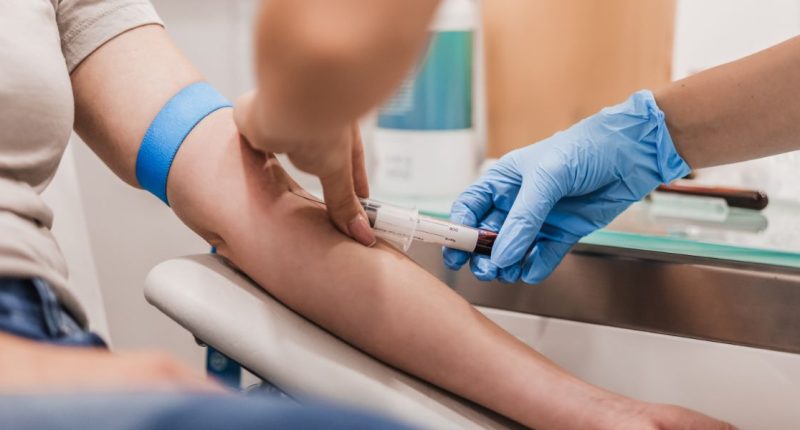- At least 55,000 people in England will be invited for fresh HbA1c tests after some lab machines gave biased results
- A number of people were told they had type 2 diabetes in error and some may have taken medicine they did not need
- NHS England says clinical risk is low and anyone affected will be contacted by their GP or local hospital
Thousands of people across England are being recalled for repeat HbA1c tests after a problem with certain lab analysers led to inaccurate results.
Sixteen NHS hospital trusts were using the affected equipment from Trinity Biotech.
The machines produced results with a positive bias, which means some readings were higher than they should have been.
A higher HbA1c can tip a result into the range used to diagnose type 2 diabetes or pre diabetes, so a small error can have a big impact on the label a person receives and the treatment they are offered.
- Turmeric can help people with type 2 diabetes lose weight
- SGLT-2 inhibitors to become first-choice treatments for type 2 diabetes
- Dementia risk lowered by type 2 diabetes drug
The regulator was first alerted in April 2024 and field safety notices went out to users through 2024.
An early cluster was reported at Luton and Dunstable Hospital in September 2024 where around 11,000 people were asked to retest. NHS England now estimates that at least 55,000 people nationally will need new blood tests. It also notes that recorded type 2 diabetes diagnoses rose by about 10,000 in 2024, around four percent above trend, which may partly reflect the testing issue.
Fewer than one in ten NHS laboratories were affected and those services have replaced equipment or corrected calibration.
For people, the consequences vary. Some were told they had type 2 diabetes, started eye screening and lifestyle support, and in a number of cases began treatment such as metformin.
Others were told their levels were raised and that they were at high risk.
Discovering later that the result may not have been accurate can be frustrating and upsetting.
One patient described months of worry, time off work for appointments, and side effects from medicine that she may not have needed.
If you are affected you should hear from your GP practice or the hospital laboratory with an invitation to repeat the HbA1c.
The repeat test is a simple venous blood sample that looks at average glucose over the previous two to three months. It is used both to diagnose type 2 diabetes and to monitor people already living with the condition.
When you go for the retest it can help to bring a list of any medicines you are taking, any recent illnesses, and any changes in routine such as fasting, heavy exercise, or steroid use that might influence results.





